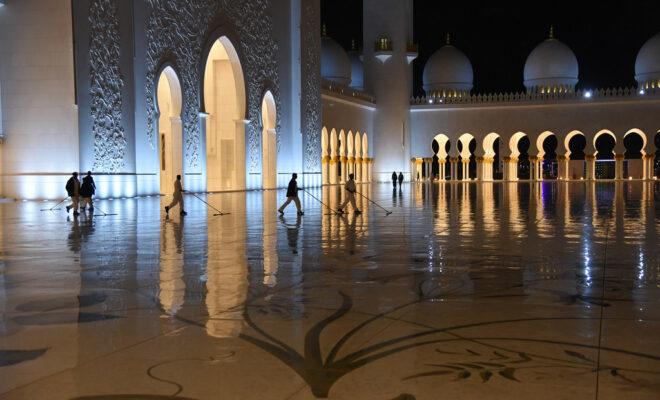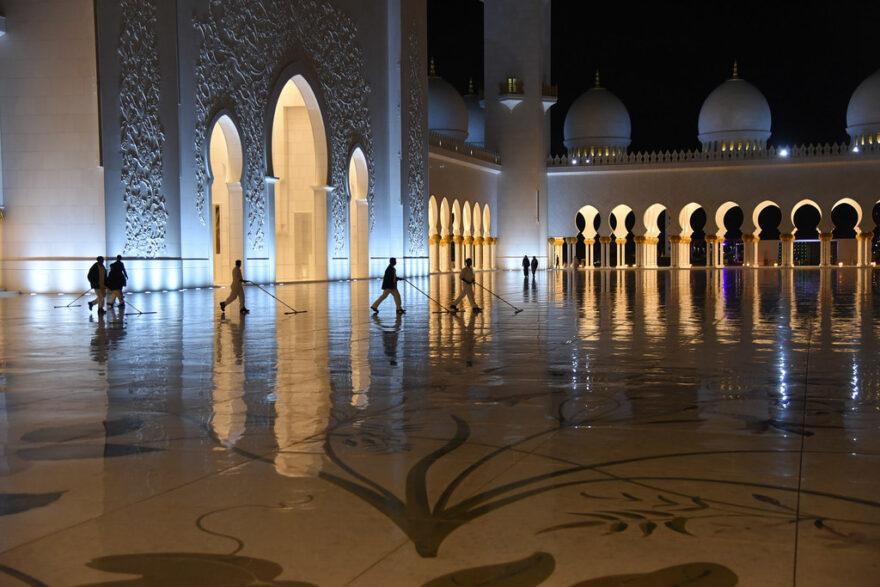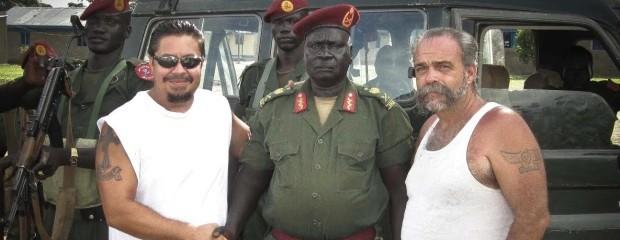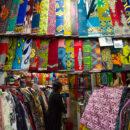The UAE government tortured me because of my skin colour

I was one of 800 Black African migrant workers rounded up, abused and deported. This should be the final nail in the UAE’s international reputation.

In the courtyard in the UAE, migrant workers wipe the floors from one side to another, usually in groups of 3-6. After they reach the other side, they repeat until they clean the entire surface. Credit: Puru Shah.
In the early hours of 24 June, I was sleeping in my room in Abu Dhabi when the police burst through the door. I lived in segregated accommodation with dozens of other people like myself – Black African migrants who work in the service sector in the United Arab Emirates (UAE).
The police forced entry into our apartments. They used stun guns and beat and shackled our hands and feet. They then forced us into vehicles before taking us to jail. We were miles from anywhere, in the middle of the desert. No one else knew where we were.
My arrest was part of a wider effort to detain 800 Black Africans. The experience of others is equally disturbing. Female workers reported that they were sexually harassed during their arrests and accused of prostitution. The jailors said Emirati authorities intended to “clean” the streets of Abu Dhabi of Black Africans. Men and women, some of them pregnant were chained up for weeks. We were denied medical attention, legal representation and beaten while being “questioned”. I will always remember the laughs of the guards as they abused us.
After 38 days’ detention, I was put on a commercial flight back to Uganda with nothing but my phone and the prison uniform on my back. To this day I have never been charged, but I will never go back.
There is a clear hierarchy of citizens in the UAE. Of the country’s ten million population, just one million are permanent residents. These locals typically hold the best paid and most secure jobs, with nice houses and cars. Europeans come next in terms of preference, then migrant workers from other predominantly white countries. Asian workers are next and, finally, Black Africans.
The UAE has, on paper, recently engaged in labour reforms to grant greater protection to migrants within the Kafala system through which employers sponsor workers’ visas. But in my experience, these protections do not apply to those of us at the bottom of the heap. We are frequently employed in physically demanding roles with low salaries. We are made to live in segregated accommodation and suffer discrimination in most aspects of our daily lives. After being illegally deported, many of our jobs were re-advertised, but Black applicants would not be accepted. The crackdown from the UAE’s government was therefore not unexpected, though the severity surprised even those of us who lived with regular abuse.
The UAE has violated its international human rights obligations and destroyed the lives and livelihoods of over 800 individuals. I and my fellow victims urge the UN to launch a full investigation into these allegations, especially as the UAE’s recent response to the report was blatant denial.
The international community cannot ignore the abuse of people simply trying to live their lives in the UAE, just because the ill treatment happens away from their own front porch. After a year that has seen international outcry at racial inequalities in the West, it’s now time to wake up to racism in the Gulf.
I am also calling on our respective governments to do more to protect and represent us, their citizens, as we work abroad to be able to contribute back to our home countries. I have contacted the Ugandan government and am yet to hear a response. As the UAE increasingly sees the African continent as a key trade partner, our governments should see this as an opportunity to assert migrants’ rights in the UAE.
There is a dire need to bring justice to the victims and ensure the hundred still illegally detained are released. But unless we acknowledge and address the systemic racism in the country that has given way to such abhorrent and shocking treatment of human beings, people like me will continue to be abducted and tortured because of the colour of our skin. The UAE’s human rights record is already appalling. People are detained for wearing the wrong clothes, posting the wrong thing on social media, or just being in the wrong place at the wrong time. The racial targeting of 800 Black people should be the final nail in the UAE’s international reputation.





